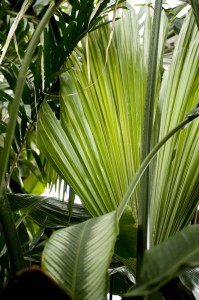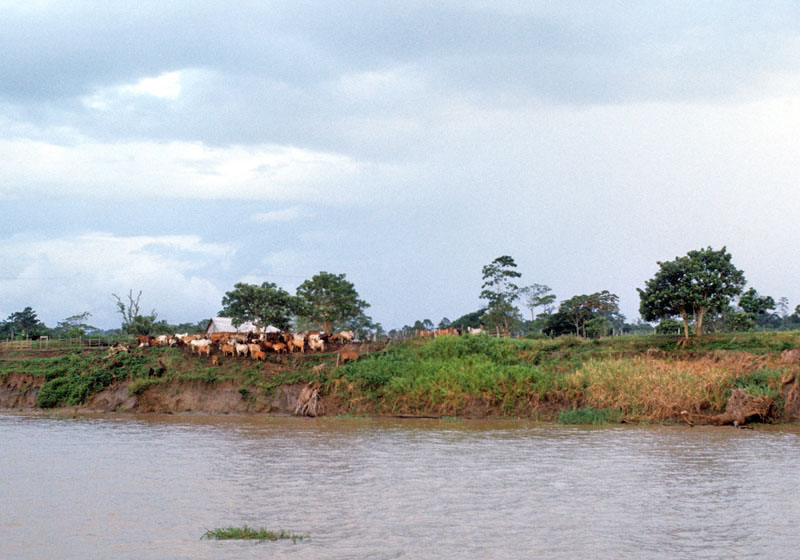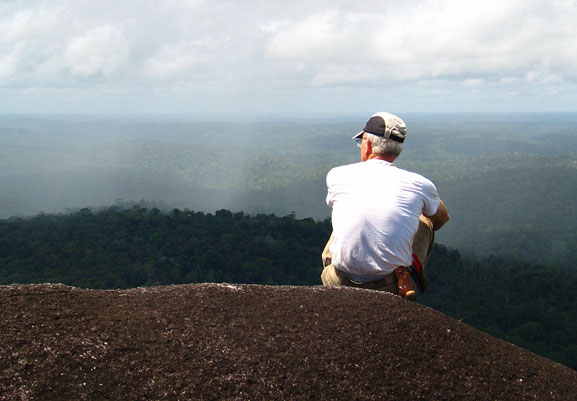The Future of Tropical Forests in the New World
Posted in Science on January 24 2013, by Scott Mori
Scott A. Mori has been studying New World rain forests for nearly 40 years. He has witnessed an unrelenting reduction in the extent of the forests he studies and, as a result, has become concerned about their future. The following blog is based on a chapter in his recent book, Tropical Plant Collecting: From the Field to the Internet.
 The future of plant and animal diversity in Latin American rain forests depends on an understanding of how fragile the plant and animal interactions found in this ecosystem are. The relationships between plants and animals in the tropics are so closely co-evolved that man’s utilization of tropical forests always results in loss of biodiversity. After a 40-year career of botanical exploration in the New World tropics, I conclude that human beings had little to do with the evolution of biodiversity anywhere on the planet, especially in the tropics, and, as Thomas Friedman said in his book Hot, Flat, and Crowded, “We are the only species in this vast web of life that no animal or plant in nature depends on for its survival–yet we depend on this whole web of life for our survival.”
The future of plant and animal diversity in Latin American rain forests depends on an understanding of how fragile the plant and animal interactions found in this ecosystem are. The relationships between plants and animals in the tropics are so closely co-evolved that man’s utilization of tropical forests always results in loss of biodiversity. After a 40-year career of botanical exploration in the New World tropics, I conclude that human beings had little to do with the evolution of biodiversity anywhere on the planet, especially in the tropics, and, as Thomas Friedman said in his book Hot, Flat, and Crowded, “We are the only species in this vast web of life that no animal or plant in nature depends on for its survival–yet we depend on this whole web of life for our survival.”
I believe that increasing human population and consumption throughout the world is not compatible with the preservation of the world’s biodiversity, but that rings especially true in the tropics. Moreover, many tropical forests grow on soils that are so nutrient poor they will never support high human populations without massive inputs of fertilizers and pesticides. If tropical areas are not productive enough today to provide significant resources to a world population of 6.5 billion, what makes humans think that they will be able to contribute to supporting a population of nine to 11 billion humans by 2050? The consumptive power of a resident of today’s Amazon rain forest is several orders of magnitude greater than that of the pre-Colombian inhabitants who based their economy on fertilizer- and pesticide-independent agricultural systems. In short, residents of the tropics–and the world in general–will not be able to protect biodiversity at the level it needs if both human population growth and consumption are not controlled.

The globalization or flattening of the world has placed environmental pressures on the world’s ecosystems that were unforeseen 20 years ago. Hence, all large-scale agricultural, water, forestry, mining, and other resource use schemes must consider the impact they will have world-wide. For example, the development of biofuels will have both direct and indirect impacts on tropical forest biodiversity, and these influences must be weighed before large-scale projects to produce biofuels–such as growing corn as a fermentation source–can be undertaken.
Finally, the true cost of tropical forest exploitation must be considered in any scheme to modify tropical ecosystems for human profit. Simply stated, non-tropical countries will have to pay more for products such as bananas or for hardwoods from the tropics because of the loss of ecosystem services provided by the forests that these activities either replace or modify. Those increased prices should include the cost to protect large enough reserves of tropical ecosystems to 1) maintain the ecosystem services they provide and 2) protect the biodiversity they harbor. As an example, the cost of maintaining tropical forests to sequester carbon must be shared by the entire world as part of human efforts to control climate change.

Biologists now have enough knowledge about tropical forests and the conditions under which they grow to determine which areas are appropriate for sustainable agriculture and cattle grazing, which areas should be managed as extractive reserves, and which areas should be set aside as biological reserves. It is no longer the responsibility of botanists, zoologists, and ecologists to demonstrate that tropical rain forests are valuable because they provide ecosystem services to the entire world; it is incumbent upon those who wish to “develop” the forests to demonstrate that the use they propose justifies the accompanying loss of biodiversity and ecosystem services that will occur when they are exploited for human gain.

